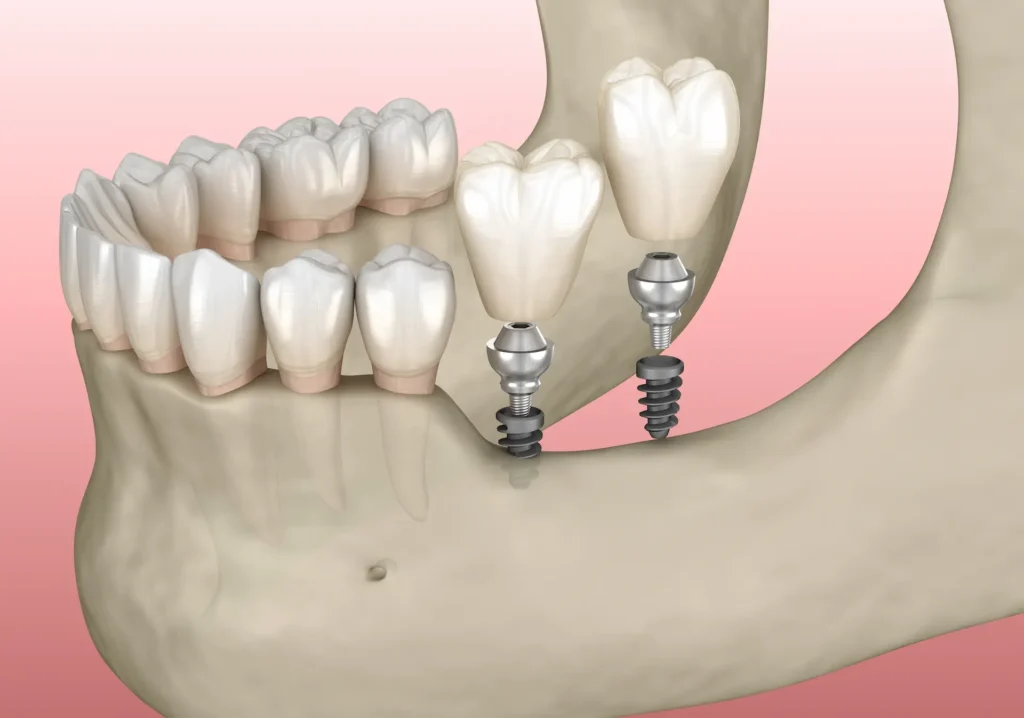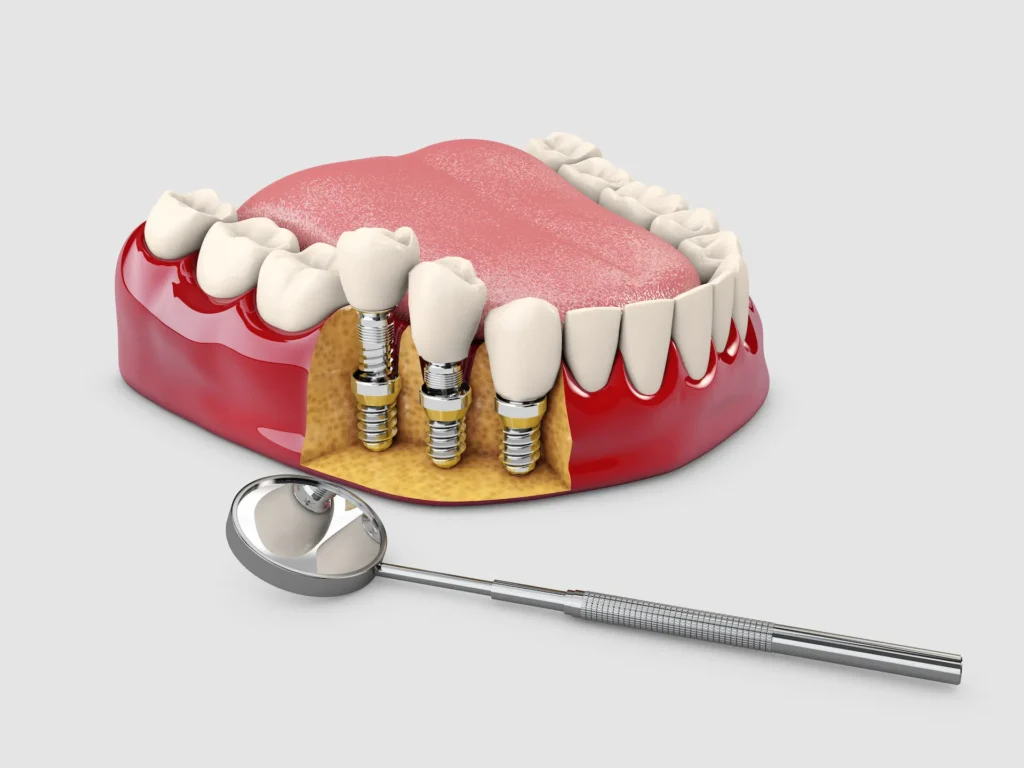Replacing missing teeth is a common concern for many people. Fortunately, there are now effective, long-lasting solutions for tooth replacement, such as dental implants and mini implants. But how do you know which is best for you?
Dental implants and mini implants are both excellent solutions for tooth replacement. Dental implants are titanium posts surgically placed in the jawbone to support a dental crown, bridge, or denture. Mini implants are similar to dental implants but are smaller and require less invasive surgery. Both options can improve your oral health and quality of life.
This article looks at dental implants vs. mini implants, so you can decide which is best for you.
Dental Implants: The Gold Standard
Dental implants are titanium posts that are surgically placed into the jawbone. Once placed, they act as artificial tooth roots, providing stability and durability for long-lasting restoration. With a natural look and feel, dental implants provide an excellent option for tooth replacement.
Traditional dental implants offer several advantages over traditional tooth replacement methods:
- They provide superior stability and durability, giving them a longer lifespan than other methods.
- Because they look and feel more natural, they provide a more aesthetic result.
- Dental implants can also help preserve the jawbone, preventing bone loss and maintaining facial structure.
Mini Implants: An Alternative Option
Mini implants are a great alternative to traditional dental implants for certain cases.
Smaller-sized implants can offer the same benefits as traditional implants, requiring a simpler and less invasive procedure, leading to faster healing and recovery.

Mini implants have several benefits, including:
- A simpler and less invasive procedure
- Faster healing and recovery time
- Lower cost than traditional implants.
- Depending on your needs, they may also be suitable for specific scenarios.
At Hanna Dental Implant Center, our experienced team of specialists can help you determine if mini implants are the right option. We provide personalized care and attention to ensure you get the best possible results and the highest quality of care.
Dental Implant vs. Mini Implant: Factors to Consider
Dental and mini implants are two of the most common types of implants, and they have advantages and disadvantages. Knowing the differences between the two can help you decide which implant option is best for your needs.
| Dental Implant | Mini Implant |
| Larger | Smaller |
| Longer recovery time | Shorter recovery period |
| More extensive surgery | Don’t require as much surgery |
| Higher cost | Less expensive |
| Higher stability | Less stable |
| Better suited for long-term solutions | Better suited for short-term solutions |

Dental implants are larger and require more extensive surgery and a longer recovery time than mini implants. Mini implants are smaller and can be placed more quickly, with a shorter recovery period. Although mini implants are less expensive and don’t require as much surgery, they are not suitable for everyone. The jawbone quantity and quality must be evaluated to determine the most suitable implant option.
Your dental professional should take time to understand your treatment goals and expectations to recommend the best implant option. Dental implants are better suited for long-term solutions, while mini implants can be used for short-term solutions. Our team will work with you to create a treatment plan that meets your individual needs and expectations.
When considering dental implants, several anatomical considerations can impact the choice of implant. The amount of available space in the jawbone and the bone structure itself can play a significant role in determining the size and type of implant most appropriate. A thorough examination and consultation with a dental professional can help determine which implant option will work best for you.
It is important to note that the expertise and experience of the dental professional placing the implant is also crucial. Implant placement requires a high level of skill and knowledge, and an experienced practitioner can make the best decisions regarding implant size, placement, and overall treatment plan.
When comparing the cost of traditional dental implants and mini implants, weighing each option’s benefits is important. While mini implants may be less expensive, they may not offer the same stability and longevity as traditional implants.
Insurance coverage for implant procedures can vary widely, and you should consult with your provider to determine what coverage may be available for the specific treatment you require.
Ultimately, the decision to pursue dental implants should be made in consultation with a dental implant specialist who can provide personalized recommendations based on your needs and circumstances.
FAQs
What are the disadvantages of mini dental implants?
Mini dental implants have a few disadvantages when compared to traditional dental implants. While they are more affordable and require less time for the implantation procedure, mini implants have a lower success rate. They may not provide the same level of stability as regular implants. They may not be suitable for everyone and unable to support larger restorations.
Do mini implants last as long as regular implants?
Mini implants are typically not designed to last as long as regular implants. Regular implants are made of titanium and are designed to last a lifetime. Mini implants, on the other hand, are typically made of plastic and are meant to be replaced after five to seven years.
Is a short implant better than a long implant?
It depends on the individual situation. Short implants may be better for those with limited bone in the jaw, while long implants may be better for those with more bone. The best option is to consult with a dental implant specialist to determine which one is best for your situation.
What is the success rate of mini implants?
The success rate of mini implants is generally lower than regular implants. Mini implants typically have a success rate of around 85-90%, while regular implants have a success rate of 95-100%.
Discover What Implant is Best For You
Dental and mini implants are used to replace missing teeth, but they differ in size, the amount of jawbone required for placement, and how long they last.
Mini implants are smaller, can be used when there is less available bone, and are designed to be a temporary solution. Dental implants are larger and more durable and are designed to be a permanent solution.
When it comes to making the right decision for your dental needs, you can trust the experts at Hanna Dental Implant Center. Our team of experienced professionals provides the highest quality of care and is dedicated to helping you achieve your perfect smile.
Contact us today to learn more about dental implants and mini implants in Houston.



